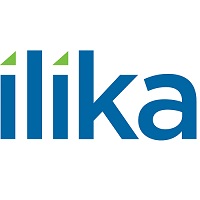Ilika plc (LON:IKA) Chief Executive Officer Graeme Purdy caught up with DirectorsTalk for an exclusive interview to discuss the ‘internet of things’ and how batteries play a part in that market
Q1: We’re hearing more and more of this ‘internet of things’, can you tell us what it is?
A1: The ‘internet of things’ is a concept whereby machines and devices are connected to the internet and the information that these machines sent is used to optimise systems and make some of the products and systems that we’ve come to be very familiar with, much more useful and efficient.
Q2: So how do batteries play a part in the internet of things?
A2: Well, a lot of the devices that are connected to the internet need a power source. So you’ve got two alternatives, you either cable an electricity supply to those devices, it could be sensors for instance, or you could use an autonomous energy supply that is often cheaper than putting in a permanent cable. So you could use a battery that actually just operates until the battery is run down but increasingly, a lot of the systems are completely autonomous in that they combine an energy harvester, so a little solar panel or a TV panel, with the battery and the device that is being powered. That means that effectively you fit it and forget about it and it operates for the lifetime of the sensor.
Q3: So who are going to be the largest addressable sectors for Ilika?
A3: Most of the early adopted applications are for so-called smart homes or smart buildings and these are primarily the installation of sensors to measure temperature and light and movement so that you get much more efficient in the way that you power a building. So you only switch the lights on when somebody’s in the room or you all switch on the air conditioning when the temperature reaches a certain level and of course, a lot of existing heritage buildings that weren’t built in the last five years haven’t got these systems as part of the basic infrastructure so rather than going in and channelling all of the cables to install these sensors, there’s a big market for putting in these autonomous systems that we talked about earlier. So that’s smart buildings and then I guess the second biggest market is actually transport and these are things like aeroplanes and cars which increasingly use sensors in order to make them more efficient and to give passengers and drivers much more information. The average car that you buy now has got 150 sensors in it so things like parking sensors and humidity sensors that activate the windscreen wipers and light sensors that switch on your lights automatically and there’s also a big move to try and change those from being hardwired to being autonomous systems that run off batteries and a wireless. Thirdly, I guess the medical device sector where there’s an increase in drive towards monitoring vital biological indications constantly and sending that information through to surgeons and GP’s who can then look at the data and observe trends and manage the health of their patients much more effectively.
Q4: The route to market is through OEM’s, what the commercial relationship like there?
A4: Our business model has always been to work together with larger companies who develop products that they then sell to their customer base and so we’re a business-to-business organisation, effectively we licence our IP once we’ve demonstrated products at pre-commercial prototype stage. We use this business model because of course, relatively small companies like Ilika it’s sometimes difficult to get products adopted and to hit the mass market and so we use the existing channels that are provided by some of the big OEM’s that we work with.
Q5: We’ve seen today that you’ve appointed a new executive director with quite an extensive background too in technology, could you tell us about this?
A5: We’re very excited about the appointment of Mike Inglis, he comes at a time when the company is going through that commercialisation inflection point and he brings a wealth of experience from ARM where he was Commercial Director and Pace and actually we sometimes used the ARM business model as analogue to explain our activities to the market, obviously ARM has been very successful in licencing their semi-conductor IP, most of the major chip manufacturers around the world use ARM for their expertise and we really aspire to having a similar sort of success with our IP around materials and batteries in particular.
Q6: I believe Mike’s position takes effect from today?
A6: Yes, so Mike is appointed with immediate effect and he will in fact becoming our chairman at the AGM as long as everything goes to plan.


